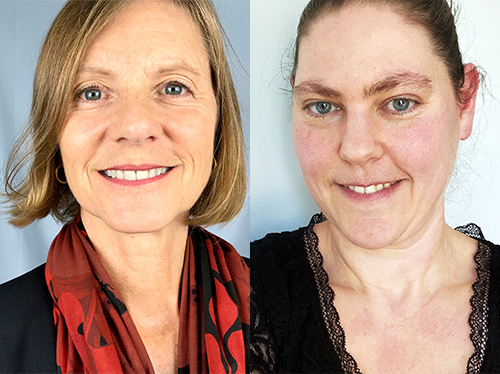 Neonatal Screening Online Course(s) & Continuing Education
Neonatal Screening Online Course(s) & Continuing Education
Access the latest clinical skills and research for Neonatal Screening for NEONATOLOGY professional training. These Neonatal Screening online courses provide practice-changing skills and valuable perspectives from leading global experts. This Neonatal Screening education has been accredited for a variety of CEUs / CERPs and can be accessed on-demand, at your own pace.
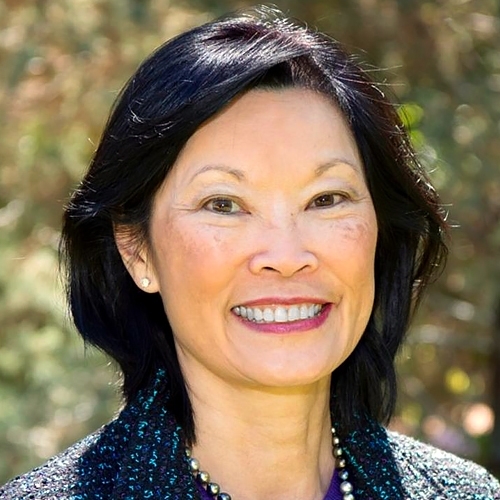

Dr. Elizabeth Sharpe is a neonatal nurse practitioner and vascular access specialist with over 25 years of experience in Level II and Level III NICUs. She is an Associate Professor Clinical Nursing at The Ohio State University and Specialty Track Director of the Neonatal Nurse Practitioner Specialty in the Master of Science Graduate Nursing Program. Her unique contributions focus on education, vascular access, simulation, and harm prevention. She is the coauthor of the National Association of Neonatal Nurses (NANN) Guideline for Practice: Neonatal Peripherally Inserted Central Catheters, 3rd Edition, and has authored numerous publications. Dr. Sharpe has served two terms on the Board of Directors of the National Association of Neonatal Nurses (NANN.org) and currently serves as the NANN liaison to the Council of International Neonatal Nurses. She was honored to be named the 1st Janet Pettit Scholar by the Association for Vascular Access (avainfo.org) and a Fellow of the American Association of Nurse Practitioners and the National Academies of Practice.
Our special babies present unique challenges in vascular access. This presentation will highlight different methods of vascular access in neonates and infants including anatomy, therapy and patient characteristics. This will provide baseline information regarding guidelines for proper placement of umbilical catheters, surgically-inserted, peripherally inserted central catheters (PICC), midline and peripheral intravenous catheter. This is essential to building the knowledge base of new nurses and will update advanced neonatal nurses.

View Details / Enroll
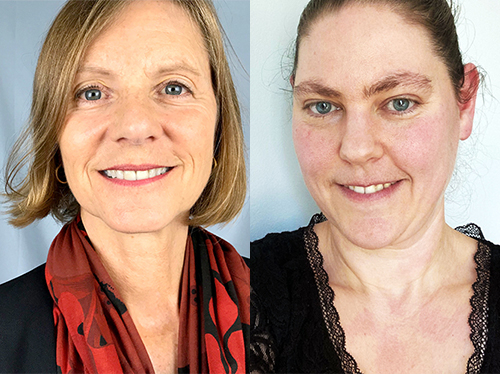

Heidi Heflin RN, MN, CPSTI became a Child Passenger Safety (CPS) Technician in 2013, then an instructor with training in transportation of children with disabilities and school bus transportation. A year later, she established the CPS exhibit at the American Academy of Pediatric Conference for >10,000 attendees seen annually since. She instantly saw the need to combine her experiences by advising, educating, and advocating for nurses in CPS, leading to national, then international presentations. In 2018, she relaunched CPS-In-Healthcare Google group to support hospitals without CPS staff. She’s written for NANN E-News for neonatal nurses and CPS Express for CPSTs. In 2021, she joined the Association for the Advancement of Automotive Medicine and is revising their child restraint policy. She was named a Kidz in Motion ‘CPS Hero’ 2019, 2022, and was a recipient of the SafetyBeltSafe U.S.A. 2022 Siegel Child Safety Restraint Award. Her research examining neonatal nurses’ CPS knowledge and practice is pending publication. Heidi ‘s fervor is for working with CPS pioneers in lower- and middle-income countries. Her favorite work is with CPS Malaysia especially when she met with the Director of the Road Safety Council in 2018. When not working, she cycles with friends, hikes with her dog Olive, or ocean-swims with dolphins.
Carrie Rhodes is the Passenger Safety Program Coordinator at Nationwide Children's Hospital in Columbus, Ohio. She is a Child Passenger Safety Technician-Instructor, Certified Health Education Specialist, and instructor for Safe Travel for All Children: Transporting Children with Special Healthcare Needs, and holds a Master of Transportation Safety Administration from Clemson University. In her role as Passenger Safety Program Coordinator, she focuses on facilitating safe transportation at the time of discharge for patients of all ages, from neonates to teens. Her work includes frequent assistance with car seat tolerance screenings across the hospital's neonatal intensive care units, working with families and clinical staff to achieve the correct balance between a neonate's cardiorespiratory safety and their protection in the event of a motor vehicle crash. She is passionate about ensuring NICU staff understand the importance of both neonate positioning and proper car seat use, as well as remaining abreast of the most currently available evidence to inform transportation decisions and practices.
Healthcare professionals play an important role in promoting the safety of neonates during motor vehicle travel. Properly securing neonates in age- and size- appropriate car seats reduces the risk of serious injury or death from a motor vehicle crash, yet research and field data show most infants and children are incorrectly secured in their car seats. Additionally, screening fragile infants for positioning and tolerance in their car seat reduces the risk of cardiorespiratory compromise. However, research demonstrates that although the American Academy of Pediatrics continues to recommend that at-risk infants be monitored for tolerance in an appropriate car seat or car bed, knowledge, policies, and practices vary widely between healthcare institutions. In light of these concerns, this presentation will review the rationale behind the recommendation to complete a Car Seat Tolerance Screening (CSTS) and discuss common misconceptions about the process and results. Additionally, the steps to set up and conduct a CSTS will be discussed, including a focus on proper harnessing and positioning of the neonate. Finally, the scope of practice of the provider, the bedside nurse, and the hospital’s Child Passenger Safety Technician will be explored.
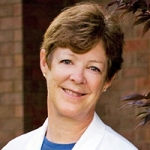

Dr. Sue Hall has been a neonatologist for 25 years, and before that she worked as a master’s level social worker. She has a BA from Stanford University, an MSW from Boston University, and an MD from the University of Missouri-Kansas City. She completed training in Pediatrics and Neonatology at The Children’s Mercy Hospital in Kansas City, MO, then joined the faculty at UCLA’s David Geffen School of Medicine where she affiliated for 19 years. Now in private practice at a community hospital NICU in Oxnard, California, Dr. Hall was the Co-Chair of the National Perinatal Association’s Workgroup on “Interdisciplinary Recommendations for Psychosocial Support of NICU Parents,” which resulted in publication of a supplement issue of Journal of Perinatology in December, 2015. She is also the author of a book about life in the NICU, titled For the Love of Babies, published in June, 2011.
This presentation will cover the evaluation and management of the following conditions commonly seen in newborns at or shortly after birth: Pheumothorax, transient tachypnea of the newborn, sepsis, poor transition, respiratory distress syndrome, meconium aspiration syndrome, and cyanotic congenital heart disease. Clinical photographs and reproductions of xrays will assist the participant's ability to recognize these conditions

View Details / Enroll
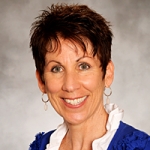
Newborn Screening for Critical Congenital Heart Defects (CCHD) Using Pulse Oximetry

Regina Grazel is a certified perinatal advanced practice nurse with more than 30 years of neonatal nursing experience. She holds several clinical designations, including ANCC board-certified high-risk perinatal nurse, neonatal resuscitation program regional trainer, NANN neonatal developmental care specialist, and certified breastfeeding counselor. Jean is currently serving on the National Association of Neonatal Nurses (NANN) Board of Directors as the Immediate Past President having completed her term as President in October 2016. Jean is also a former president of the Delaware Valley chapter of NANN. After many years as a Perinatal Clinical Nurse Specialist in the acute care setting, she has moved into the public health arena. Jean is employed by the New Jersey Chapter of the American Academy of Pediatrics as the Program Director for the New Jersey Department of Health Critical Congenital Heart Defects Screening Program and Zika Infant Surveillance.
This presentation will review the background and importance of newborn screening with pulse oximetry to aid in the early detection of critical congenital heart defects and other serious conditions. Factors influencing implementation of the screening including legislation, advocacy efforts and recommendations by professional medical associations will be covered. Best practices for performing the screening will be reviewed as well as implications for screening in the NICU and other special populations. The results of the first statewide screening program implemented in the US will be shared to demonstrate the unique contribution of pulse oximetry in the detection of previously unrecognized CCHD.

View Details / Enroll
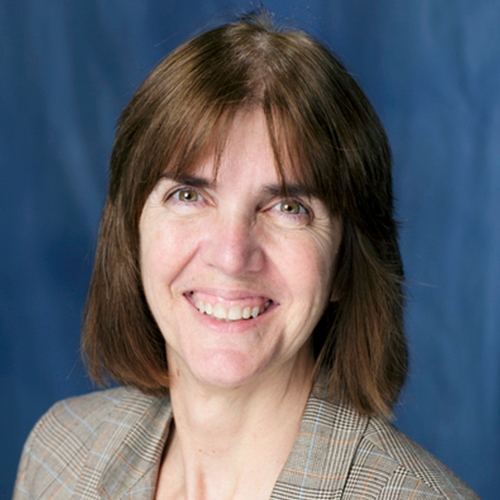
Recognition and Management of the Infant With Congenital Anomalies

Dr. Jacqueline Hoffman has over 37 years in the field of neonatal health care. She completed her Masters in Perinatal/Neonatal Health at the State University of StonyBrook and her DNP at the University of Alabama, Birmingham. She was previously the NNP Track Coordinator and Clinical Faculty at UAB and the University of Florida. She is currently an Assistant Professor at Rush University in Chicago in the DNP-NNP track. She has a clinical practice with Oregon Health & Science University (OHSU) and is the lead NNP at PeaceHealth Southwest in Vancouver, Washington. She precepts medical (family and pediatric residents) and NNP students in her clinical practice. She was part of the original Council for the National Association of Neonatal Nurse Practitioners (NANNP), is a Member-At-Large for the Florida Association of Neonatal Nurse Practitioners (FANNP), and is a member of the Academy of Neonatal Nurses, American Academy of Pediatrics (AAP) Perinatal Section, American Association of Nurse Practitioners (AANP), and member of the Association of Women's Health, Obstetric and Neonatal Nursing (AWHONN). She has authored several book chapters in textbooks targeted for the NNP. She is a nationally known speaker as well as has presented several poster presentations on Case Studies.
Throughout pregnancy, parents begin dreaming of their perfect, healthy baby. What happens when their dreams appear to be shattered by an infant that has obvious dysmorphic features and may have long-term problems? This session will provide an overview of common genetic terms, discussion of classifications of congenital anomalies with common findings, discussion of cytogenetic evaluation, and family communication.


Leslie Parker has a dual position at the College of Nursing and the College of Medicine at the University of Florida where she is a professor. She has been a neonatal nurse practitioner since 1990 and continues to practice as a neonatal nurse practitioner in the NICU at UF Health. She was the tract coordinator of the neonatal nurse practitioner program from 1992-2011. She has been involved in human milk research for nearly two decades and focuses on improving milk production in mothers of critically ill and premature infants. She is funded by the National Institutes of Health for her team’s work regarding neonatal nutrition including the risk of feeding tube contamination, risks and benefits of gastric residual evaluation and optimizing consumption of breast milk for preterm infants.
Until recently, routine monitoring of gastric residuals has been standard care in most neonatal intensive care units (NICUs). Rationale for this practice includes early recognition of feeding intolerance and necrotizing enterocolitis. However, gastric residuals are often used to direct feeding decisions and thus their use can result in delays and interruptions in feeding resulting in an increased risk of complications. Recent evidence suggests that the routine monitoring of gastric residuals prior to every feeding may not be clinically necessary and other clinical indicators may be sufficient to monitor for feeding intolerance and necrotizing enterocolitis. This presentation will describe practices clinicians are currently using to monitor gastric residuals In addition, an overview of current evidence including the risks and benefits of monitoring gastric residuals, alternatives to monitoring gastric residuals, and how to best change unit practice in order to decrease the routine use of aspirating and evaluating gastric residuals prior to every feeding will be presented.

View Details / Enroll



